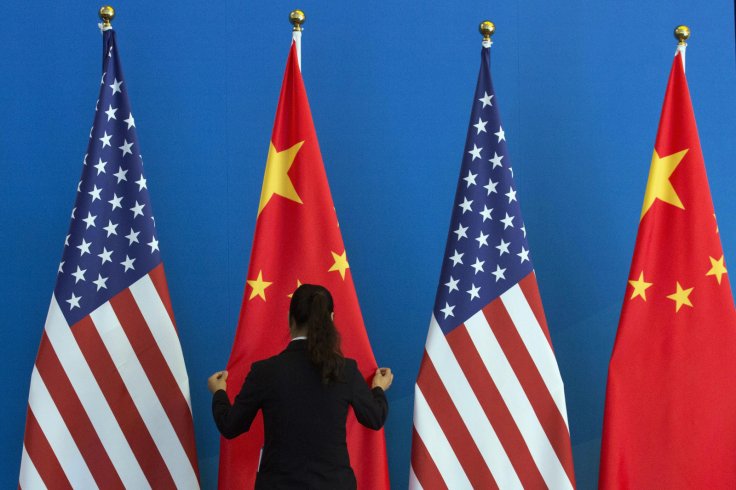
Concerns over trade, conflict and oil will dominate a summit of the Group of 20 major economies in Japan this weekend, with attention focused on a meeting between the leaders of the United States and China, embroiled in a lengthy trade war.
Donald Trump and Xi Jinping will meet for the first time in seven months to discuss deteriorating ties between the world's two largest economies. But prospects of progress look slim, as neither side has given ground after talks broke down in May.
Many G20 members have a stake in the outcome because the row has disrupted global supply chains, slowed world growth and stirred expectations of interest rate cuts or other stimulus measures by some of the group's central banks.
But some have expressed disquiet that the trade row might overshadow efforts to tackle pressing international issues.
The Sino-U.S. trade clash is "serious", but it shouldn't "take a multilateral body hostage", said an official of French President Emmanuel Macron's Elysee office.
Trump will arrive in Osaka just a week after calling off a retaliatory air strike on Iran after it shot down an unmanned U.S. aircraft. The threat of a Middle East conflict has driven up global oil prices.
The leaders of Russia and Saudi Arabia, both G20 members, will also attend the two-day summit that starts on Friday, ahead of a meeting of oil cartel OPEC on July 1 and 2 to discuss oil supply policy.
Financial markets have rallied since Trump and Xi spoke by telephone last week and agreed to meet in Osaka and revive trade talks that collapsed in early May, after the United States accused China of reneging on its pledges.
The two sides have slapped tariffs on hundreds of billions of dollars of each other's imports in the nearly year-long trade war, even as they have tried to hammer out a broad trade deal.
"ANY OUTCOME"
Trump views his meeting with Xi, probably to be held on Saturday, as a chance to see where Beijing stands and is "comfortable with any outcome", a senior U.S. official said, on condition of anonymity.
White House officials have declined to discuss expectations ahead of the summit, saying only they are hopeful for Chinese leaders to follow through on commitments to compete fairly.
Beijing counters that U.S. demands for a host of economic reforms amount to a violation of its sovereignty.
Publicly, Chinese officials say the trade war's effects are controllable and they are in no hurry to reach a deal.
Many in Beijing hope the 2020 U.S. election campaign could deter Trump from further trade measures that risk upsetting farmers and businesses.
"Right now we feel, actually, that we have more stamina than the U.S. side," said Liang Ming, a trade expert at the Chinese commerce ministry's Academy of International Trade and Economic Cooperation.
"NEW TRAJECTORY"
Xi is unlikely to delve into the details of a potential trade deal, as he did at a meeting with Trump in Buenos Aires in December, said a source who recently met Chinese trade officials.
Instead, Xi will try to "set a new trajectory" for ties, the source quoted the trade officials as saying.
Privately, Chinese trade experts acknowledge disagreement in policy circles about confronting Washington on trade, with many wary of further U.S. tariffs.
American sanctions on China's telecoms giant Huawei Technologies could also figure in the leaders' talks.
A truce in the trade spat is more likely than a deal, said Matthew Goodman of the Center for Strategic and International Studies in Washington, formerly an international economic adviser to former president Barack Obama.
FINDING CONSENSUS
Several other G20 members, such as India, Japan, Mexico and European Union nations, also have had to grapple with the Trump administration's efforts to remake trade ties.
That's making it difficult to craft a final communique with language that all 20 members can agree on, Japanese government officials say.
A draft of the statement calls for "the promotion of free trade" as a means to achieve strong global growth, Japan's Asahi newspaper reported Wednesday.
At last year's summit, under pressure from the Trump administration, the G20 removed a phrase calling for the need to resist protectionism.
Some European countries are demanding that this year's communique include language warning against the spread of protectionist policies, prompting host Japan to try to find a compromise, the Asahi said.
TENSIONS IN GULF
A White House official said Trump would also meet at least eight world leaders, including Saudi Crown Prince Mohammed bin Salman, Turkish President Tayyip Erdogan and Russian President Vladimir Putin, to win support for sanctions on Iran.
Japanese host Prime Minister Shinzo Abe wants the G20 summit to focus on reforming the World Trade Organization, empowering female workers and reducing trash in the ocean.
"There's not many topics all participants can agree on," another Japanese government official said. "Maybe plastic garbage reduction is the only area no one opposes."








